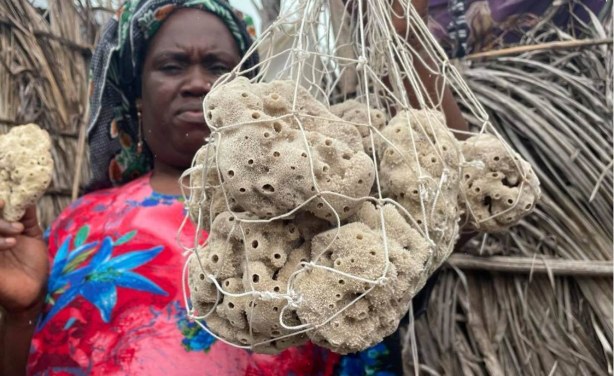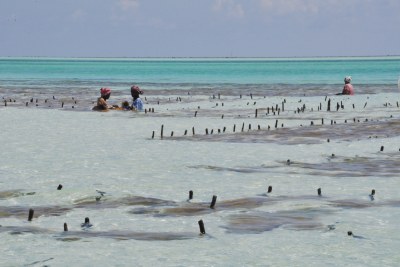-
Tanzania: As Oceans Warm, Zanzibar's Women Sea Farmers Grow Sponges to Stay Afloat
Thomson Reuters Foundation, 4 August 2021
Zanzibari women are learning how to swim and farm natural sponges that can withstand climate shocks and protect their income Read more »
-
Tanzania: DSFA - Come Enmasse to Invest in Deep Sea
Daily News, 21 April 2021
THE Acting Director General of the Deep Sea Fishing Authority (DSFA) Dr Emmanuel Sweke has called upon both local and foreign investors to capitalise on the ongoing reforms in… Read more »
-
Tanzania: Women Empowerment Vital for Economic Development
Daily News, 29 June 2021
WOMEN'S ability to overcome poverty, cope with shocks and improve their well-being have been taking the central role in economic empowerment endeavours in the country. Read more »
-
Tanzania: Regulations Set to Boost Deep Sea Fishing
Daily News, 11 April 2021
DEEP Sea Fisheries Management and Development Act's regulations were signed here over the weekend, paving way for massive registration of fishing vessels. Read more »
As Oceans Warm, Zanzibar Sea Farmers Grow Sponges to Survive
Nasir Hassan Haji alongside 12 other women in Jambiani village on the Indian Ocean coast, never thought of themselves as farmers or swimmers, but they have had to learn to swim for their floating sponge farm businesses to stay afloat. These farmers have come to rely on the climate-resilient, natural sponges bobbing on thick ropes, where they grow for months before the women harvest, clean and sell them to shops and tourists.
Research by the State University of Zanzibar shows that more than 90% of seaweed farmers on the island are women, and that they have seen changing water temperatures, rainfall patterns and ocean salinity hit production in recent years.
Using data that shows Zanzibar warming over the past 40 years, a 2012 study from the Global Climate Adaptation Partnership and Britain's former Department for International Development, projected the island's average maximum monthly temperature would rise by 1.5 to 2 degrees Celsius by the 2050s.
InFocus
-
Rising sea temperatures and turbulent weather have damaged the harvests of Zanzibar's seaweed farms and put growers out of work, researchers say. Read more »

Nasir Hassan Haji holds up her harvested sponges in a bag from her home in Jambiani in Zanzibar, Tanzania. June 21, 2021.


